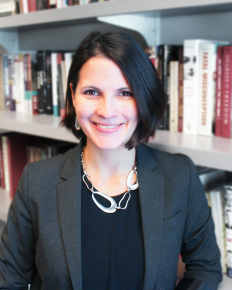Editors’ Note: HistPhil co-editor Maribel Morey introduces her new book, White Philanthropy: Carnegie Corporation’s An American Dilemma and the Making of a White World Order (2021), and underscores the research methodology at the foundation of the book’s historical narrative. Earlier this month, my first book, White Philanthropy: Carnegie Corporation’s An American Dilemma and the Making … Continue reading
Category Archives: Philanthropy and Historical Research
Frederick Douglass and the Political Theory of Dirty Money
Editors’ Note: Emma Saunders-Hastings introduces her new article in American Political Science Review on Frederick Douglass and his political theory of ‘dirty money.’ In 1844, the newly-formed Free Church of Scotland sent a fundraising mission to the United States. It raised about £3,000, largely from southern Presbyterian donors. Abolitionists in the United States and abroad … Continue reading
Mutual insurance: Its recent rise and very long history in the Netherlands
Editors’ Note: Examining the historical record on Dutch mutual insurance from the sixteenth century to the present, Marco H.D. van Leeuwen suggests learning from this history. While acknowledging that mutualism might not “regain the importance it once had,” van Leeuwen suggests “it might well occupy a more prominent place. Indeed, we might well need the … Continue reading
Waqf and the Management of Water Resources in the Middle East: the historical role of local communities
Editors’ Note: Closing HistPhil’s forum on waqfs, Sabrina Joseph argues that, by analyzing natural resource management in early modern Ottoman Syria, for example, “we gain precious insight not only into the role of local communities but also into those value systems and indigenous institutions, such as waqf, that can be harnessed by present day political … Continue reading
FLUID JURISDICTIONS (2020) and Solid Perpetuities
Editors’ Note: Continuing HistPhil‘s forum on waqfs, Leilah Vevaina reviews Nurfadzilah Yahaya’s Fluid Jurisdictions (2020), while discussing her own research on religious endowments in India and the Straits Settlements. Vevaina writes: “This axis of what colonial authorities recognized as public, and hence, as charitable giving, versus familial hence private giving, was the key evaluator of why … Continue reading
The Unintended Effects of Waqf Litigation: A Review of FLUID JURISDICTIONS (2020)
Editors’ Note: Continuing HistPhil‘s forum on waqfs, Nada Moumtaz relates Nurfadzilah Yahaya’s Fluid Jurisdictions (2020) with her own research of waqf litigation in twentieth century Beirut, Lebanon. Moumtaz argues: “Beyond Yahaya’s explanation of waqf litigation among the Arab diaspora in nineteenth century Southeast Asia, I want to suggest—based on my own research of twentieth century … Continue reading
Surplus and Colonial Charity
Editors’ Note: Launching HistPhil’s forum on waqfs, Nurfadzilah Yahaya introduces her new book, Fluid Jurisdictions: Colonial Law and Arabs in Southeast Asia (Cornell University Press, 2020) In this presentation of Fluid Jurisdictions, Yahaya notes that: “While scholarship on the history of human generosity is haunted by discussions of altruistic ends and self-regarding motives, the specific … Continue reading
Introducing HistPhil’s Forum on Waqfs
Editors’ Note: This post, by HistPhil co-editor Maribel Morey, introduces HistPhil’s forum on waqfs, which will be featured on this site for the next weeks. If Andrew Carnegie invented modern philanthropy, Bill Gates has become its global evangelist. For many HistPhil readers, including myself at times, this statement might not seem to be controversial. After … Continue reading
Movement Capture and the Long Arc of the Black Freedom Struggle
Editors’ Note: Responding to Ford Foundation President Darren Walker’s statement on Juneteenth that these are “[un]precedented times– and hopefully a sign of the change that’s to come,” Erica Kohl-Arenas and Megan Ming Francis ask which roles Walker and other philanthropic leaders intend or want to play in the context of the movement for Black lives; … Continue reading
Updating HistPhil’s Reading List: The Long History of Knowledge Production on US Philanthropy
Editors’ Note: Today (June 7, 2023), HistPhil co-editor Maribel Morey has updated this list of readings on US philanthropy that she originally published three years ago in June 2020 and last updated in April 2021. In June 2020, I first uploaded onto HistPhil a list of reading resources on US philanthropy, in response to Black … Continue reading
A Grantee’s Freedom and Independence
Editors’ Note: In anticipation of “An American Dilemma for the 21st Century” conference at the Schomburg Center for Research in Black Culture in NYC next Wednesday (where she will be presenting), HistPhil co-editor Maribel Morey encourages here on HistPhil some dialogue on the relative constraints and freedoms of the funder-grantee relationship, a topic of mutual … Continue reading
Announcing the Jewish Philanthropy Research Initiative
Editors’ Note: The organizers of a new research initiative in Jewish philanthropy announce its inauguration. In a newly published study that draws on the first comprehensive data set of U.S.-based Jewish philanthropic organizations, Hanna Shaul Bar Nissim and Mathew Brookner show that such organizations gave more than $46 billion in grants in the period between … Continue reading
An Economic History Challenge to the History of Philanthropy
Editors’ Note: David Hammack reviews Organizations, Civil Society, and the Roots of Development, edited by Naomi R. Lamoreaux and John Joseph Wallis. For more than thirty years a growing literature has debated the origins of the market economy and the relation between the market and economic growth. Motivating this debate is the understanding, widely shared … Continue reading
7 Ways to Read around the History of Philanthropy’s Diversity Problem this Black History Month
Editors’ Note: Against the backdrop of Black History Month, Tyrone McKinley Freeman asks fellow historians of philanthropy to acknowledge black Americans’ history as philanthropists, reminding us that the current literature on the history of US philanthropy “does not fully capture the richness of African Americans’ giving, volunteering, associating, and advocating systems, models, behaviors and ways … Continue reading
Networked Social Movements and the ‘Tyranny of Structurelessness’
Editors’ Note: Rhodri Davies reflects on the contemporary relevance of Jo Freeman’s 1970 essay, “The Tyranny of Structurelessness.” The recent success of digitally-coordinated protest movements like Black Lives Matter and #MeToo has sparked a wave of interest in the potential for technology to transform the ways in which we organise. In particular, it has placed … Continue reading
Cost Escalation in U.S. Higher Education: Historical Analysis and the Competing Bowen Theories
Editors’ Note: Bruce Kimball casts the light of historical analysis on the two major theories explaining cost escalation in U.S. higher education. His post draws upon the following sources: Bruce A. Kimball and Jeremy B. Luke, “Historical Dimensions of the “Cost Disease” in U.S. Higher Education, 1870s–2010s,” Social Science History 42 (2018): 29-55; Bruce A. Kimball and … Continue reading
Choosing between Financial Viability and a Political Voice: A History of the NAACP’s Tax Status
Editors’ Note: Bringing historical context to the NAACP’s decision in 2017 to change its tax status from a 501(c)3 to 501(c)4, HistPhil co-editor Maribel Morey argues that the NAACP’s announcement “should be understood as yet another move by an organization long deciding between accepting political silence and financial viability as a 501(c)3 or gaining political voice and financial vulnerability as … Continue reading
The Unevenness of Archives
Editors’ Note: With a lens on the funding of black education in early twentieth-century United States, Melissa Wooten discusses how wealth inequality among charitable givers and racialized tendencies in public memory lead to inequities in the archives, and thus too, to writing histories privileging the philanthropic acts of the wealthy over the less wealthy and of whites … Continue reading
Undergraduate Seminar on the History of Philanthropy
Editors’ Note: Last August, I shared with readers my syllabus for a graduate seminar on the history of philanthropy. In a similar spirit, I am including below an undergraduate version of that class which I will be teaching this fall. Of course, and as always, please feel free to reach out with feedback and suggestions both on … Continue reading
The Changing Meaning of Community Development in Harlem (And its Consequences)
Editors’ Note: Brian D. Goldstein introduces his recent work, The Roots of Urban Renaissance: Gentrification and the Struggle Over Harlem (Harvard, 2017). The January 29, 1977 front page of the New York Amsterdam News offered grim news to any Harlemites hoping to own part of the land they inhabited. “Harlem Commonwealth Council Fails to Sell Shares to Residents,” … Continue reading


















